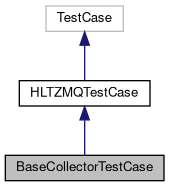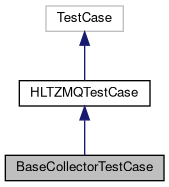|
| def | setUp (self) |
| |
| def | create_output_socket (self) |
| |
| def | get_signal (self, output_socket, signal_type) |
| |
| def | get_event (self, output_socket) |
| |
| def | testHelloAndMessageTransmission (self) |
| |
| def | testWrongRegistration (self) |
| |
| def | testEventPropagation (self) |
| |
| def | tearDown (self) |
| |
| def | assertIsDown (self, name, timeout=5, minimum_delay=0.1) |
| |
| def | assertIsRunning (self, name) |
| |
| def | assertMonitoring (self, socket, search_key, search_value, timeout=10) |
| |
| def | assertIsAndGet (self, socket, message_type, final=True, router=False) |
| |
| def | assertIsMsgType (self, socket, message_type, final=True, router=False) |
| |
| def | assertNothingMore (self, socket) |
| |
| def | assertHasOutputFile (self, output_file, unlink=True, timeout=0.5, minimum_delay=0.1) |
| |
| def | assertNotHasOutputFile (self, output_file, timeout=0.5) |
| |
As the collectors are mostly equal, use a common base test case class
Definition at line 254 of file test_support.py.
◆ _is_running()
| def _is_running |
( |
|
self, |
|
|
|
name |
|
) |
| |
|
privateinherited |
Check if a given program is still running.
Definition at line 84 of file test_support.py.
◆ assertHasOutputFile()
| def assertHasOutputFile |
( |
|
self, |
|
|
|
output_file, |
|
|
|
unlink = True, |
|
|
|
timeout = 0.5, |
|
|
|
minimum_delay = 0.1 |
|
) |
| |
|
inherited |
Assert that - at least after the given timeout - the output file
is present. If unlink is set to True, remove the file after checking.
Definition at line 227 of file test_support.py.
◆ assertIsAndGet()
| def assertIsAndGet |
( |
|
self, |
|
|
|
socket, |
|
|
|
message_type, |
|
|
|
final = True, |
|
|
|
router = False |
|
) |
| |
|
inherited |
Assert that the next message received on the socket has the given message type.
If final is set to True, also assert that there is no additional message on the socket.
Use router only for router sockets.
Definition at line 200 of file test_support.py.
◆ assertIsDown()
| def assertIsDown |
( |
|
self, |
|
|
|
name, |
|
|
|
timeout = 5, |
|
|
|
minimum_delay = 0.1 |
|
) |
| |
|
inherited |
Test helper to assert the given program has terminated - at least after timeout in seconds has passed.
Checks every "minimal_delay seconds.
Definition at line 93 of file test_support.py.
◆ assertIsMsgType()
| def assertIsMsgType |
( |
|
self, |
|
|
|
socket, |
|
|
|
message_type, |
|
|
|
final = True, |
|
|
|
router = False |
|
) |
| |
|
inherited |
◆ assertIsRunning()
| def assertIsRunning |
( |
|
self, |
|
|
|
name |
|
) |
| |
|
inherited |
Assert that a given program is still running.
Definition at line 108 of file test_support.py.
◆ assertMonitoring()
| def assertMonitoring |
( |
|
self, |
|
|
|
socket, |
|
|
|
search_key, |
|
|
|
search_value, |
|
|
|
timeout = 10 |
|
) |
| |
|
inherited |
Ask the given socket for a monitoring JSON and make sure, the value related to "search_key"
is set to "search_value" - at least after the given timeout.
The search key can should be in the form "<category>.<key>".
Definition at line 169 of file test_support.py.
◆ assertNotHasOutputFile()
| def assertNotHasOutputFile |
( |
|
self, |
|
|
|
output_file, |
|
|
|
timeout = 0.5 |
|
) |
| |
|
inherited |
Assert that after the timeout the given file is not present
(a.k.a. no process has created it)
Definition at line 245 of file test_support.py.
◆ assertNothingMore()
| def assertNothingMore |
( |
|
self, |
|
|
|
socket |
|
) |
| |
|
inherited |
Assert that there is no pending message to be received on the socket.
Definition at line 221 of file test_support.py.
◆ create_output_socket()
| def create_output_socket |
( |
|
self | ) |
|
create the output socket depending if final collector or not
Definition at line 283 of file test_support.py.
◆ create_router_socket()
| def create_router_socket |
( |
|
port | ) |
|
|
staticinherited |
Shortcut to create a ROUTER type socket with the typical parameters
binding to the given port.
Definition at line 140 of file test_support.py.
◆ create_socket()
| def create_socket |
( |
|
port, |
|
|
|
socket_type = zmq.DEALER, |
|
|
|
identity = "socket", |
|
|
|
bind = False |
|
) |
| |
|
staticinherited |
Create and return a ZMQ socket with the given type and identity and
bind or connect it to localhost and the given port.
Definition at line 115 of file test_support.py.
◆ get_event()
| def get_event |
( |
|
self, |
|
|
|
output_socket |
|
) |
| |
get an event from the socket depending if final collector or not
Definition at line 301 of file test_support.py.
◆ get_free_port()
Get a free port number by reusing ZMQ's function for this.
Definition at line 41 of file test_support.py.
◆ get_signal()
| def get_signal |
( |
|
self, |
|
|
|
output_socket, |
|
|
|
signal_type |
|
) |
| |
get a signal from the socket depending if final collector or not
Definition at line 294 of file test_support.py.
◆ recv()
Try to receive a message from the socket (or throw an assertion error if none comes after the set timeout
of the socket).
Definition at line 159 of file test_support.py.
◆ send()
| def send |
( |
|
socket, |
|
|
|
message_type, |
|
|
|
first_data = b"", |
|
|
|
second_data = b"", |
|
|
|
identity = "" |
|
) |
| |
|
staticinherited |
Send a message consisting of the message type, the first and the second data
either to the identity if given or without identity if omitted.
Definition at line 148 of file test_support.py.
◆ setUp()
◆ tearDown()
Custom tearDown function to kill the started programs if still present
and remove the temporary folder again.
Definition at line 70 of file test_support.py.
◆ testEventPropagation()
| def testEventPropagation |
( |
|
self | ) |
|
◆ testHelloAndMessageTransmission()
| def testHelloAndMessageTransmission |
( |
|
self | ) |
|
◆ testWrongRegistration()
| def testWrongRegistration |
( |
|
self | ) |
|
The documentation for this class was generated from the following file:



